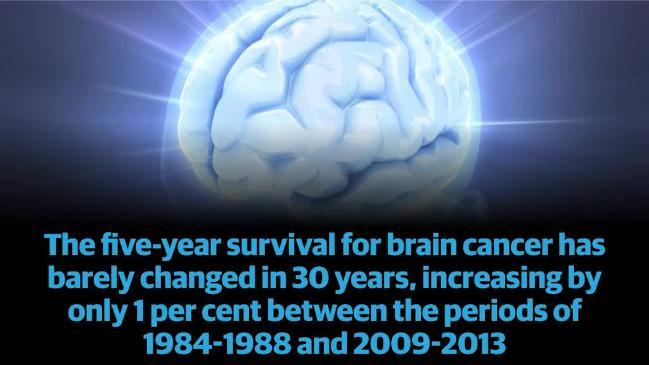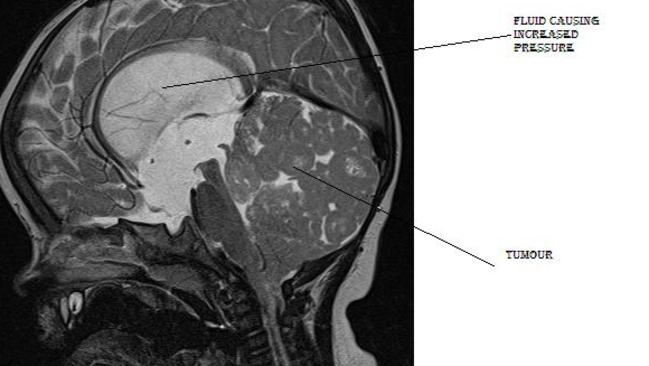Brain cancer treatments could benefit from discovery
BRAIN cancer treatment hopes have been raised after Melbourne scientists unlocked a key to using the immune system to destroy solid tumours.

VIC News
Don't miss out on the headlines from VIC News. Followed categories will be added to My News.
BRAIN cancer treatment hopes have been raised after Melbourne scientists unlocked a key to using the immune system to destroy solid tumours.
This could lead to the adaptation of groundbreaking blood cancer therapies to fight other solid cancers too.
$100M RESEARCH PLAN TO DOUBLE BRAIN CANCER SURVIVAL
MELBOURNE MOTHER AND SON DIAGNOSED WITH RARE FORMS OF BRAIN CANCER AT THE SAME TIME
Some forms of brain cancer are still 100 per cent fatal. Medication is largely palliative, and there have been no new treatments for decades.
CAR-T cell therapy, which redirects the immune system to seek out and fight cancer, has revolutionised leukaemia treatment in the past five years.
But its use on solid tumours produces toxic side effects, causing organs to shut down.
However, research led by Dr Misty Jenkins, from the Walter and Eliza Hall Institute of Medical Research, has uncovered the crucial mechanisms CAR-T therapy uses to home in on the cancer cells and has highlighted ways to minimise deadly side effects.

In conjunction with Peter MacCallum Cancer Centre, work on several new immunotherapy drugs is continuing, and there are plans to begin trials in brain cancer patients within the next two years.
“What we are looking at now is how are we going to extend these therapies to cover malignancies, such as paediatric brain cancer, where a diagnosis of a high-grade glioma in a two-year-old is a death sentence,” Dr Jenkins said.
“We need the right key to fit the lock, and it is going to be different in brain than it is in other cancers.”
CAR-T therapy relies on re-engineering cancer-killing T cells circulating in the blood by attaching a gene that allows them to recognise and then attach themselves to cancer cells, like a key into a lock.
The latest Melbourne research, published today in Proceedings of the National Academy of Sciences, found the longer the T cells remained attached to cancer cells, the more debris was created, leading to a potentially fatal toxic inflammatory response.
Dr Jenkins said the development of more efficient CAR-T drugs could reduce these toxic side effects, potentially extending the range of treatable cancers.
“We have a lot of work to do yet, but I think immunotherapy can potentially offer real hope with some of these rarer cancers,” Dr Jenkins said.


